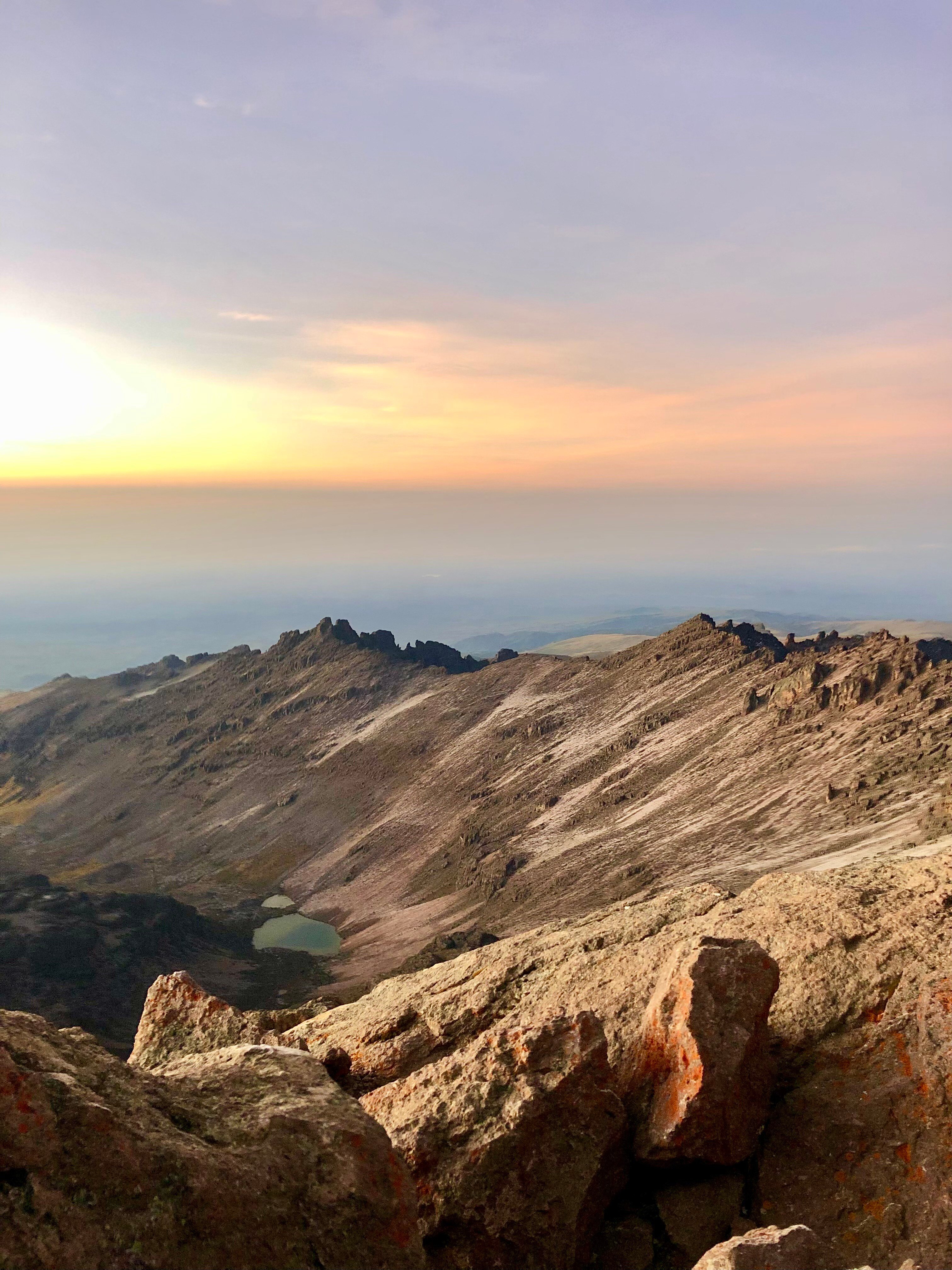INSPIRATION
Luxe Glamping in Tsavo West
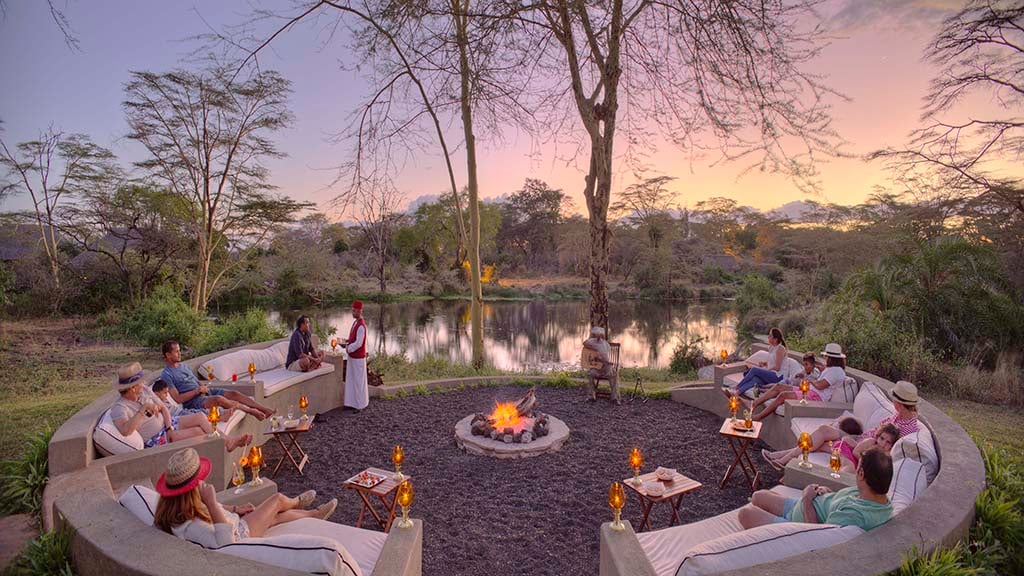
Ami Doshi Shah and her family drive down to Tsavo West National Park to stay at Finch Hattons Luxury Tented Camp, a place she first visited in 1993 and that has since reopened with a much more contemporary perspective on interiors, dining, sustainability and architecture.
Our four and half hour road trip from Nairobi to Tsavo West National Park started well before the break of dawn. Our mission was to avoid the early morning Nairobi traffic and catch a welcome cup of chai at Makindu Temple only to find that due to COVID 19, it was shut to the public. So onwards we went, finding myself and my younger son catching some shut eye and snuggled up in the back seat of the car. Three and a half hours in while down the smooth tarmacked Emali Road, we awoke. Like a beacon proclaiming “Keep Calm and Carry On”, Mount Kilimanjaro revealed herself in all her snow-capped splendour, not a cloud in sight. We took a moment to bask in her glory and take a prerequisite photo to document the moment. We spent the last hour of the off road journey with our 13-year-old’s musical repertoire of pop rap anthems and bass-thumping EDM tunes, debating over volume levels and song choices (which had at some point begun to feel like sound torture).
As we drove alongside the rolling Chyulu Hills and into the Tsavo West National Park, torrential seasonal rains had aggressively eaten away parts of the murrum road. The deluge had given swathes of grass and verdant shrubs had gained a new lease on life. Providing the perfect cover for the plethora of wildlife in this vast savannah, it seemed as though wildlife had also received the memo on social distancing. Save for the incredible sights, smatterings of butterflies, weaver birds and a near miss with a tortoise crossing the road, our drive to Finch Hattons had passed without event.
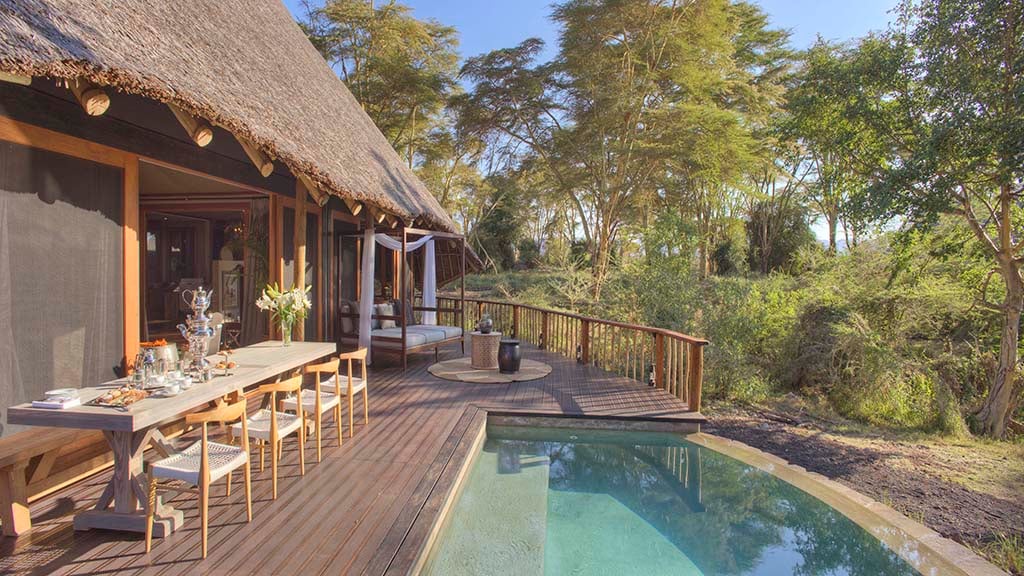
In 1993, I had come to Finch Hattons as a surly teenager (much like my son and yes, the irony is not lost on me). It was at that time newly built, with an aesthetic legacy that harked back to colonial sensibilities. After all, the property was named in honor of Denys Finch Hatton – the Eton educated, big game hunter whose illustrious affair with Karen Blixen was immortalised in her book, Out of Africa. I imagine in those days, much of the draw of tourism to this beautiful corner of East Africa was the wish to experience and live the ‘luxury safari’ of days gone by. And the Finch Hattons of 1993 did this perfectly, sans the hunting and with running water and electricity.
The Finch Hattons of today has most certainly brought the property into the 21st century. A visionary renovation that was years in the making, the property reopened its doors in 2015 with a much more contemporary perspective on interiors, dining, sustainability and architecture.
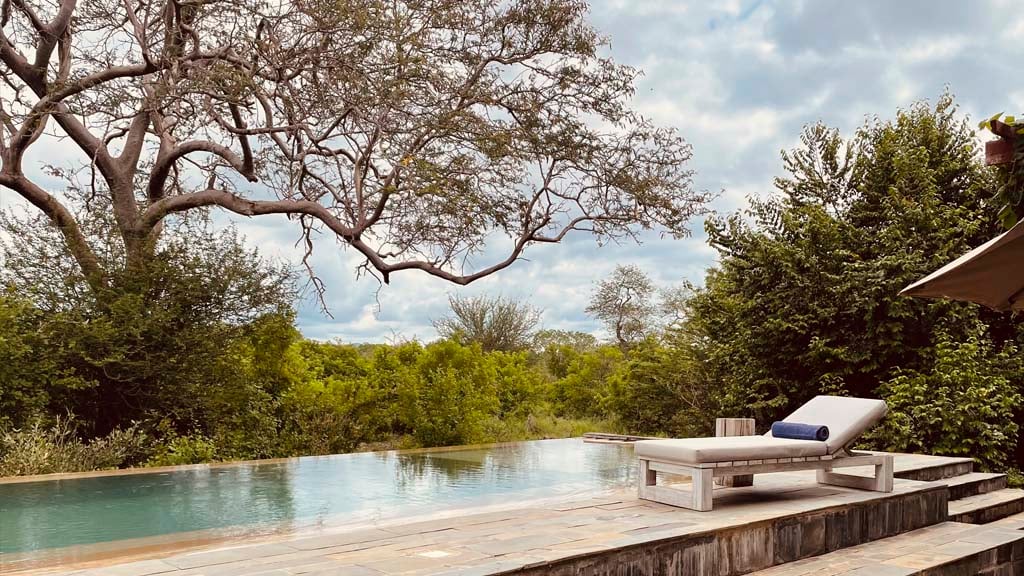
The introduction of a world class spa in the renovation, aptly named the Chyulu Spa, became one of the many spaces of respite during our stay. Awe inspiring in its architectural simplicity, the two story structure of the spa complex features a first floor yoga studio with a shrine-like view of the Chyulu Hills. We enjoyed the spa’s infinity pool, a separate air conditioned treatment room and hammam at leisure till we emerged with wrinkly-tipped fingers, sated and rejuvenated.
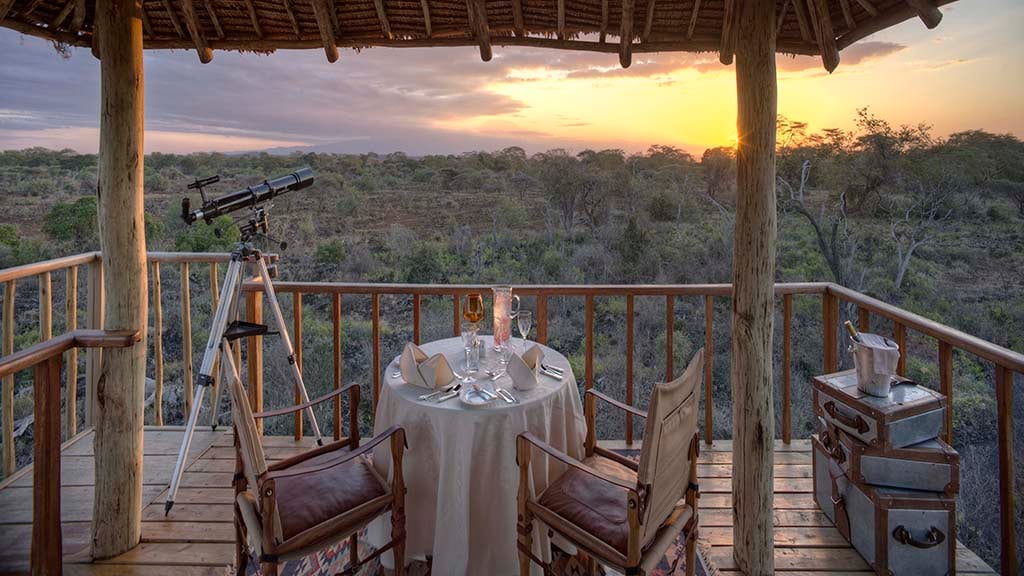
On one evening game excursion, elusive hippos, hyenas, jackals, cape buffalo and elephants emerged from the overgrown scrubland into view, wading through nearby watering holes. We drove through craggly rivers of volcanic rocks, endless rolling plains of bush and a few minutes before sunset, arrived on an elevated verge. A tent had been set up with a bar and a range of snacks from a cheese board to nibbles. Safari chairs were positioned with seemingly endless views of the horizon punctuated only by the sun receding behind Kilimanjaro and a set-up of an archery target and the Maasai equivalent of basketball hoop where the rungu took the place of the more obvious basketball. Our boys took to testing their hand-eye coordination and competitiveness as we sat back, a gin and tonic in hand, taking in this absolutely idyllic moment that had been orchestrated for us by nature and the intuitive hospitality of the team at Finch Hattons.
After checking out of the camp, we returned home after our weekend away with a sense of gratitude, acknowledging the privilege of living in one of the most beautiful countries in the world.
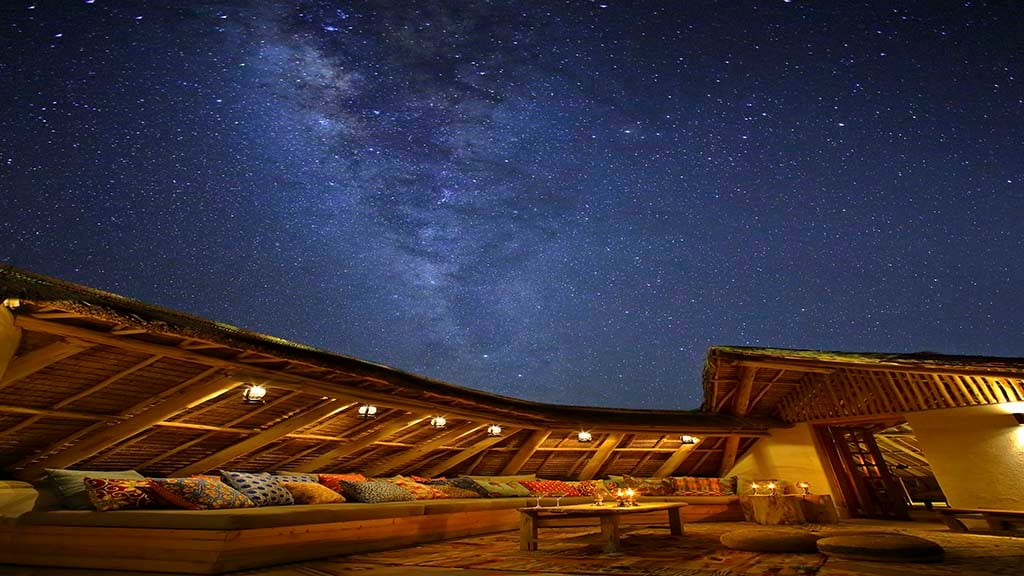
Our Top Experiences
SEEN SOMETHING YOU LIKE?
Enquire now and our team will create a custom itinerary tailored to your preferences.

CONTACT
enquiries@nomad.africa
Tel: +254 708 238 738
Purple Nomad Ltd
PO Box 69671 - 00400
Mwanzi Avenue, Nairobi, Kenya


